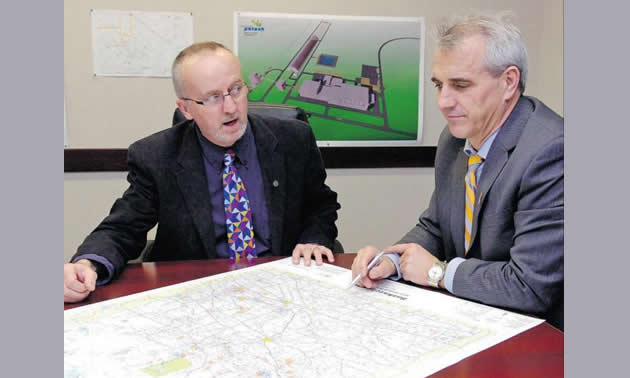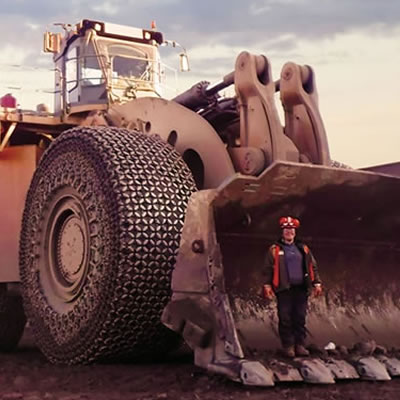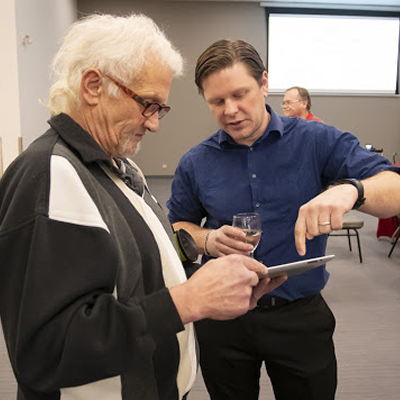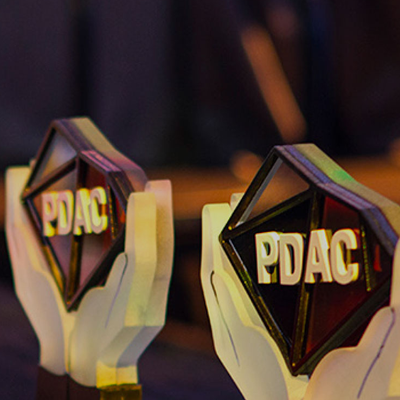Western Potash (WPX) to buy recycled waste water from City of Regina

WPX official, Greg Vogelsang, meets in Regina earlier this year.
On Monday, June 25 the City of Regina approved the key commercial terms that will see a large portion of the city’s treated sewage effluent routed to Western Potash Corp.’s Milestone Potash mine site, located approximately 30 kilometres southeast of Regina and 80 kilometres southeast of Mosaic’s Belle Plaine mining lease.
The agreement, if paid out annually, is worth more than $200 million to the City of Regina over the 45-year term, and will see up to 60,000 cubic metres of treated effluent diverted daily from the Regina waste water treatment plant to the Milestone Potash Project mine site. The City of Regina, as the proponent of the agreement, will operate the pump house and pipeline and will be responsible for obtaining all necessary environmental approvals. Western Potash will fund the capital costs associated with the construction of the pump house and pipeline.
“Western Potash is delighted to have reached this agreement with the City of Regina and is pleased to be working together to sustainably innovate the potash solution mining process,” said Western Potash Corp. president and CEO Patricio Varas. “There are certainly no other potash solution mines in the world utilizing treated waste water.”
Once up and running, the Milestone Project will draw between 40 and 70 per cent of the City of Regina‘s waste water.
“This innovation is a win-win for everyone," said acting deputy mayor Louis Browne. "Not only is the City of Regina now being compensated for treating a waste product, but we are facilitating economic growth in one of Saskatchewan’s key sectors: Potash development. In addition, downstream negative effects such as increased algae will also be alleviated, making this a prime example of how creative thinking and partnerships can yield a more promising future for everyone.”
The Milestone Project holds 66.6 million tonnes of measured recoverable resource (content and grade that can be measured with a high degree of accuracy); 186.9 million tonnes of indicated recoverable resource (content and grade that can be measured with a reasonable level of accuracy); and 708.2 million tonnes of Inferred recoverable resource. The Milestone Project contains potash resources of sufficient size and grade to support solution mining for more than 40 years at a production rate of 2.8 million tonnes per year. The in-house qualified persons for the purposes of NI 43-101 guidelines are J. Patricio Varas, P. Geo and Dean Pekeski, P. Geo, both of whom have reviewed and approved the contents of this news release.




